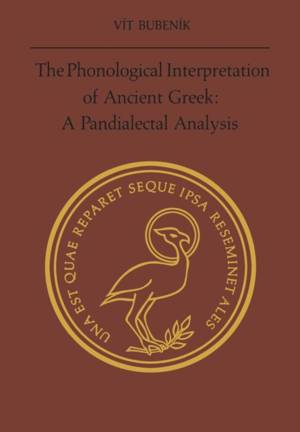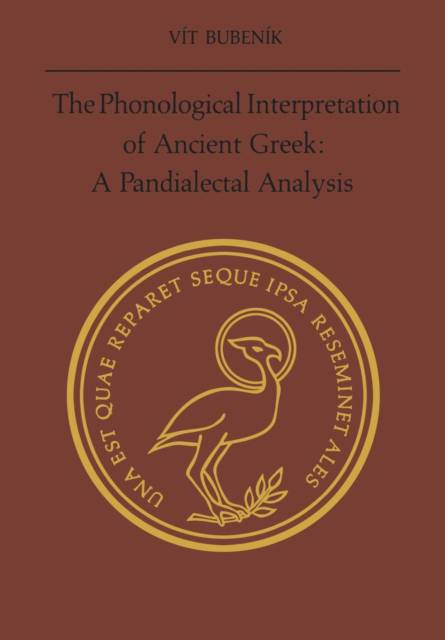
- Retrait gratuit dans votre magasin Club
- 7.000.000 titres dans notre catalogue
- Payer en toute sécurité
- Toujours un magasin près de chez vous
- Retrait gratuit dans votre magasin Club
- 7.000.0000 titres dans notre catalogue
- Payer en toute sécurité
- Toujours un magasin près de chez vous
70,95 €
+ 141 points
Description
This volume treats systematically the variation found in the
successive stages of the development of all ancient Greek dialects. It combines synchronic approach, in which generative rules expound phonological divergencies between the systems of different dialects, with a diachronic statement of unproductive and mostly pan-Hellenic shifts.Professor Bubeník presents
a phonetic description and structural phonemic analysis of the best-known variant--Classical Attic of the 5th century B.C.--and displays and contrasts the vocalic and consonantal inventories of all the other dialects classified according to their major groups. Derivational histories of individual dialects are examined in their juxtaposition, to ascertain which rules are shared by various dialects and which are dialect-specific. The pandialectal framework enables Bubeník to capture various relationships among genetically related dialects which are missed in atomistic and static treatments, and to show more convincingly the extent of their similarity and their systemic cohesion.This volume makes
a significant contribution to both classical scholarship and current theory of language change by offering new analyses of a variety of phonological and morphophonemic problems presented by a dead language and its dialects.Spécifications
Parties prenantes
- Auteur(s) :
- Editeur:
Contenu
- Nombre de pages :
- 256
- Langue:
- Anglais
- Collection :
- Tome:
- n° 19
Caractéristiques
- EAN:
- 9781442651654
- Date de parution :
- 15-12-83
- Format:
- Livre broché
- Format numérique:
- Trade paperback (VS)
- Dimensions :
- 170 mm x 244 mm
- Poids :
- 417 g

Les avis
Nous publions uniquement les avis qui respectent les conditions requises. Consultez nos conditions pour les avis.






